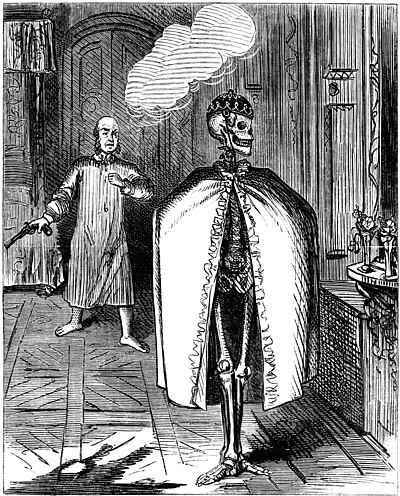THE GHOST’S NIGHT-CAP.
Just thirty years ago—that is to say in the month of November, 1829—an English family, named Daubville, was in occupation of an old Italian villa on the Leghorn Hills. It is to be regretted that the Daubvilles wrote "Honourable" before their name, because any reader with a soul above that animula vagula, blandula, which animates the tidy form of an Irish waiting-woman, must be so heartily sick of the aristocratic eidolons which pervade our modern English novels, that he would feel a history of Mr. Stubbs the tallow-chandler, an ineffable relief from the monotonous insipidity of the purple. But, as in all essentials the following narrative is true, nothing being altered but the name of the family in which it occurred, it is necessary to state or admit that the Daubville family consisted of Lady Caroline Daubville, a widow—her two daughters, Margaret and Eliza, then with her—a son John, absent at Oxford—and of Lady Caroline’s brother-in-law, also called John, who at the moment our story opens was driving up the avenue of the Villa Ardinghelli on a visit to his sister and nieces.
The two young ladies ran down-stairs to welcome their uncle. The Honourable John Daubville was tall and spare, somewhat above fifty years of age; very bald, and with a stereotyped sneer upon his lips. A kindly-natured man in reality, he prided himself upon his scorn for all forms of superstition, all prejudice, and upon his profound disbelief of all supernatural interference with the order of nature. He had trained his mind carefully in the school of the French Encyclopedists; and Voltaire, in particular, was his great authority. The universe was a huge machine—the globe a somewhat smaller one—men and women were machines with certain functions and powers; and he—the Honourable John Daubville—was a machine of a superior class. He admitted gravitation, he bowed to centrifugal force; he detested an east wind, and he rejoiced in ortolans. All things above or beyond the experience of every day life he dismissed
